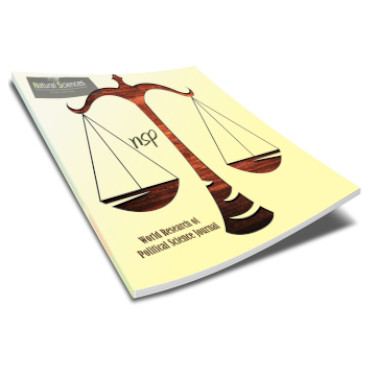
The World Research of Political Science Journal
Abstract
India’s nuclear programme can trace its origin to March 1944 and its three-stage efforts in technology were established by Homi Jehangir Bhabha when he founded the nuclear research centre, the Tata Institute of Fundamental Research. After independence, the most distinguished feature of Indian nuclear policy has been determination to be selfreliant and retain a wide measure of autonomy in nuclear matters and the main drivers of India’s nuclear posture are its geopolitical competition with China, and its simmering rivalry with Pakistan which has influenced India’s international security conditions and gradually encouraged the development of nuclear programme. India’s nuclear weapons are deeply rooted in the 1962 humiliation, which was followed two years later by its first nuclear test in 1964. It necessitated the development of India’s nuclear programme to deter another attack by China and finally the former began a designed work in 1965 which culminated in publicly demonstrating India’s nuclear capability through the peaceful nuclear explosion of 1974. The paper analyses systematically the development of India’s nuclear policy, power and expression in its nuclear test.
Recommended Citation
Kumari, Hemlata and Singh, Rajkumar
(2018)
"India’s Nuclear Status: Policy, Power and Projection in 1974,"
The World Research of Political Science Journal: Vol. 1:
Iss.
2, Article 6.
Available at:
https://digitalcommons.aaru.edu.jo/wrpsj/vol1/iss2/6

